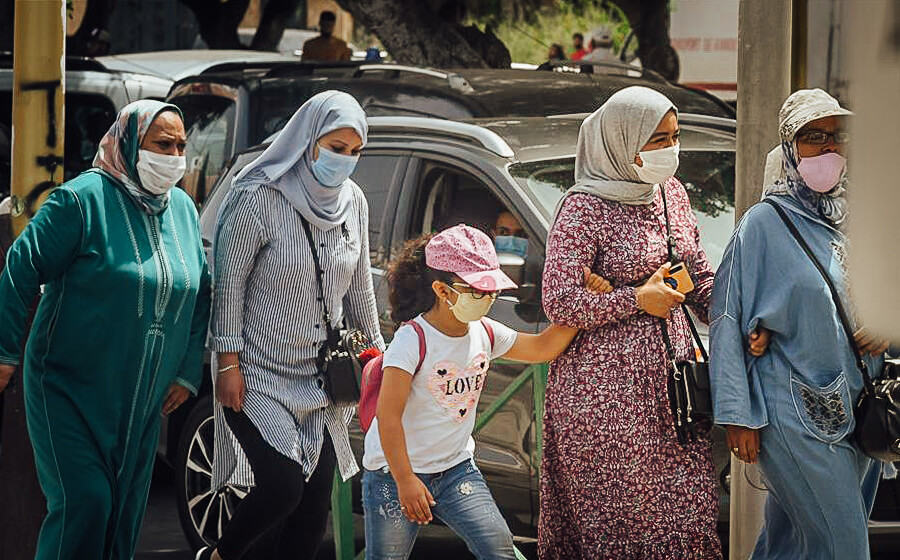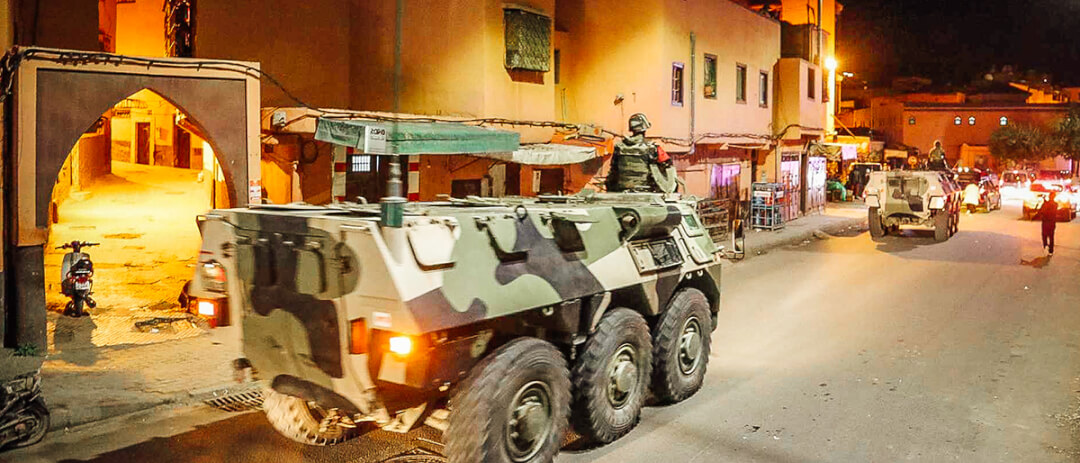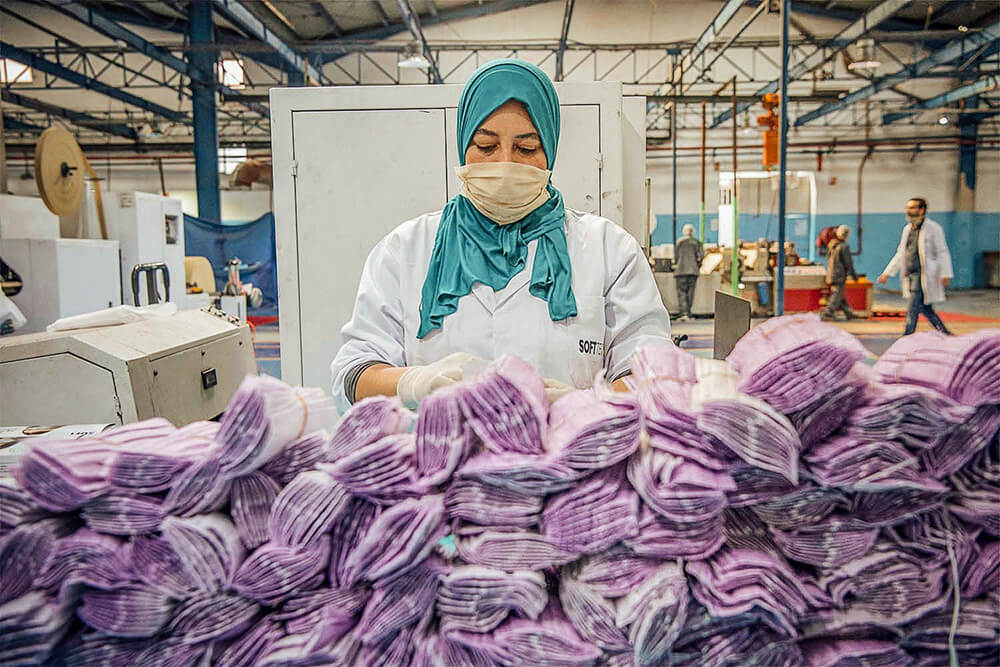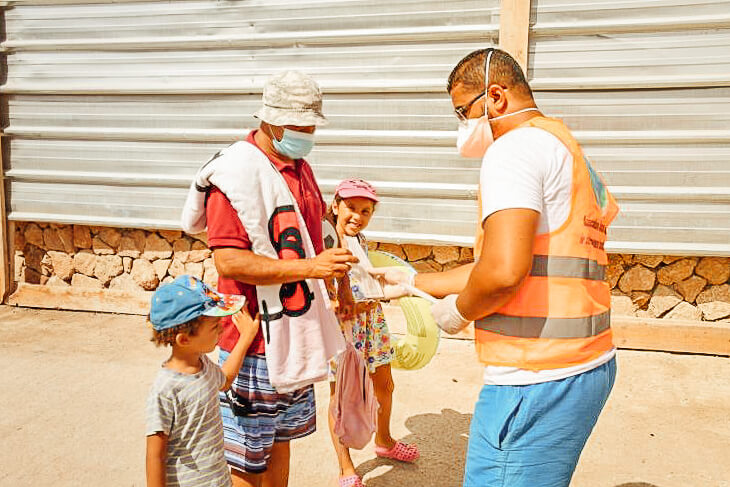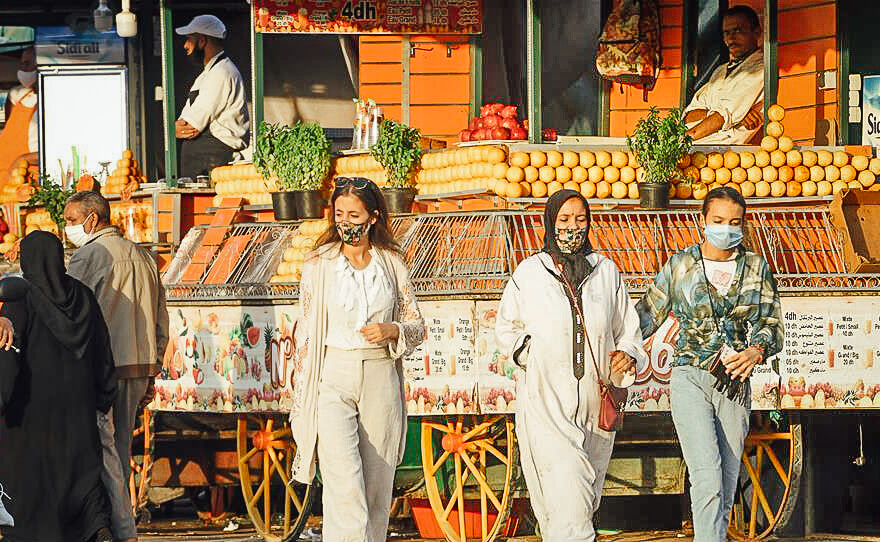In early February 2021, the Moroccan government announced an extension of the health state of emergency throughout the country until March 10. It is the eleventh, and certainly not the last, extension of the state of emergency since it was first declared on March 20, 2020. Soon to be a year in which the coronavirus pandemic has set the tempo of life in Morocco.
Coronavirus in Morocco: the last update
This announcement comes as the sad counter reads 477 thousand cases affected by the virus since the beginning of the pandemic, and 8440 deaths, a mortality rate of 1.77% of infected people (February 11, 2021).
The day of February 11 2021, recorded 471 new cases and 4 recent deaths. This is the beginning of flattening the curve. The daily peak being recorded in November 2020 with 6195 new cases and 64 deaths. In terms of coronavirus cases by region, the area of Casablanca, the economic capital and the largest population city, comes first, followed by the province of Marrakech.
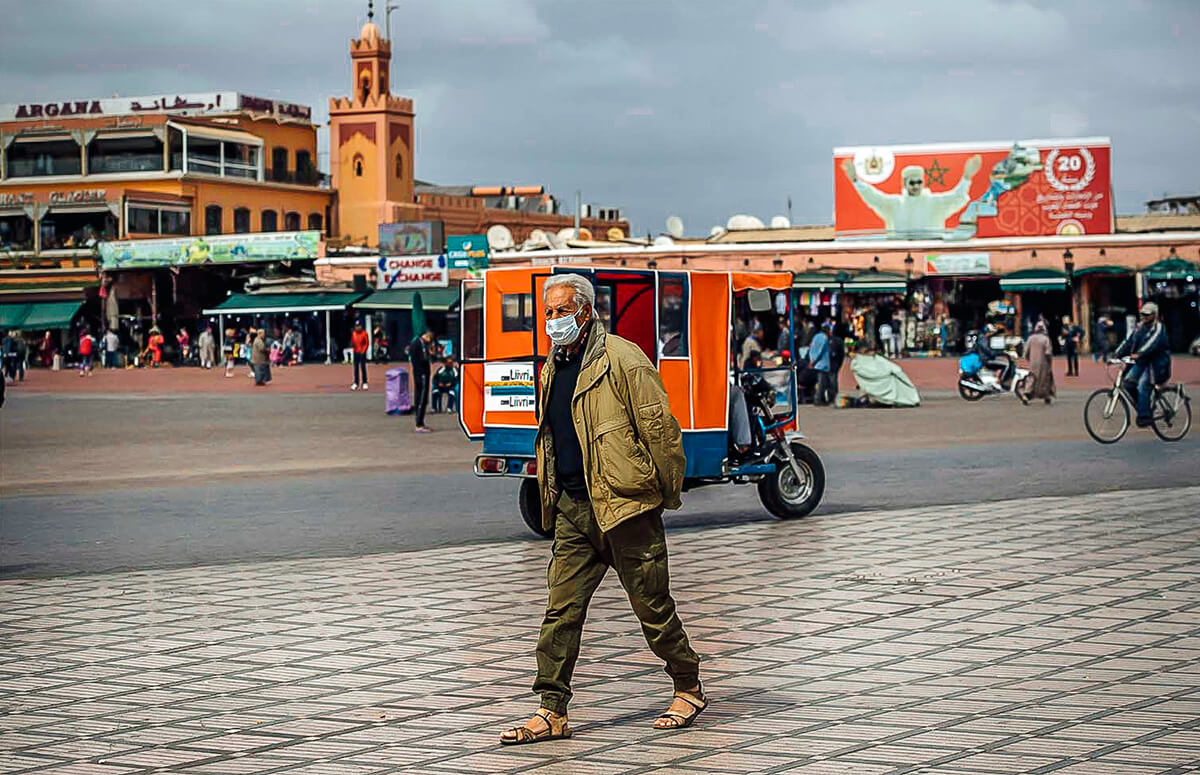
It is worth pointing out that the only source of statistics related to coronavirus in Morocco is the government. No independent source has been able to verify these figures.
Covid vaccination already started in Morocco
By the time this article is written, 855,318 people have already been vaccinated in Morocco. The government has ordered 25.5 million doses of the English vaccine AstraZeneca, produced in India, and 40.5 million doses of the Chinese vaccine Sinopharm.
So far, Morocco has received a supply of doses to vaccinate 2 million people, in addition to the 855,000 already vaccinated. Like all other countries, priority is given to the elderly, health workers, and the military.
For many, the national vaccination campaign’s launch looks like the light at the end of the tunnel. Moroccans are exhausted after a year under the health state of emergency.
Cases of contamination and deaths due to Covid19 in Morocco are indeed lower than in other countries. Still, the price has been very high in the form of economic stagnation, job losses, business closures, and restrictions on freedoms.
Morocco’s Covid regulations and lockdown: all you need to know
From March 2020 until today, the country’s borders are closed to Moroccan tourists. This means that Moroccans can’t leave the territory except for students, workers abroad and certain cases with a permit issued by the Ministry of Interior. Therefore, Moroccans cannot travel abroad for tourism until further notice.
However, foreign tourists can enter Morocco with a recent negative PCR test under several conditions, except for people from a few countries where new coronavirus variants are widespread. You can consult the conditions of entry and the list of temporarily suspended countries on this website.
The curfew is still enforced throughout the country: prohibition of circulation between 9 p.m. and 6 a.m., closure of stores, coffee shops, restaurants at 8 p.m., ban of movement from city to city without authorization and without a valid reason. Several economic, tourist and recreational activities are still prohibited, such as parks, hammams, celebrations. Football games – and other sports – take place without public.
Hence, the year has been painful with all the pressure and without any kind of celebration. And for people passionate about football even without any football matches.
But these restrictions are still less painful than the general and severe curfew of the first three months (March, April and May 2020). At this time, the country was totally closed, in an anxious and asphyxiating atmosphere.
Early months of Coronavirus in Morocco: a tale of war
Morocco’s Covid restrictions, set by two decree-laws, were severe during the first three months: total closure of national borders, the prohibition of any gathering or meeting, prohibition for people to leave their homes, day or night, except to go out to work, to buy basic necessities or to help a person in a difficult situation. Wearing a mask became mandatory in April.
Failure to comply with these provisions is punishable by one to three months in prison and/or a fine of 300 to 1300 dirhams. Only the first month after the declaration, the General Directorate of National Security announced the arrest of 76,907 people who violated the restrictions. 40,752 of them were taken into custody and brought before the public prosecutor.
The repression of the violation of the state of emergency has also targeted those who are the initiators of fake news and those who publicly deny the coronavirus’s existence.
People were keen to respect the state of emergency. If not out of fear of the virus, it was out of fear of being at the mercy of law enforcement and Ministry of the Interior officials. Their powers have been extended in the context of the pandemic.
40.000 Moroccans abandoned
Some measures were incomprehensibly severe. Such as denying entry to Moroccan tourists who were abroad at the time of the surprising border closure, leaving more than 40 thousand Moroccans abandoned to their fate and suffering for several months. Most of them without assistance.
This scandal shocked the entire nation and remained in the memory since the government refused all appeals and pleas and all proposed solutions, such as allowing these people to enter their country and stay in quarantine for as long as it takes.
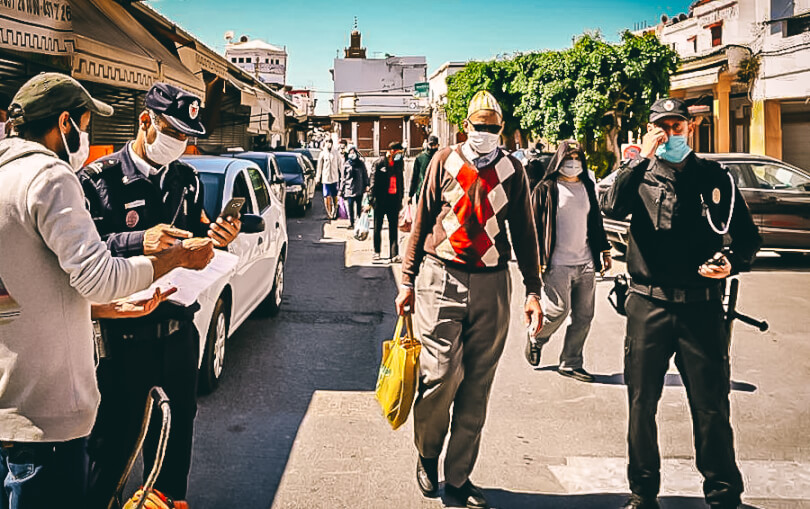
In tandem with the iron fist, the government has not spared any effort in awareness-raising and communication.
The Coronavirus theme was omnipresent
With the help of associations, student volunteers and even soccer fan groups, all channels were used to raise awareness of the new situation and its imperatives: TV and radio spots, large posters that replaced advertisements on the boulevards, graffiti, megaphone shouting, recruitment of influencers on social networks.
The coronavirus theme was omnipresent. And the instructions were repetitive: wash your hands, wear a mask, practise social distancing and stay at home.

The Ministry of Health press conference, held every day at 6 p.m. and broadcast live on television, was an appointment that Moroccans waited for and watched religiously. And for further persuasion, the Ministry of the Interior officers dropped their suits and ties for their military khaki outfits.
The army tanks paraded in the streets without intervening, a way for the government to say that the curfew is really serious, and the message got through.
The law enforcement agents went so far as to raid luxurious and prestigious restaurants that did not respect the restrictions, filming the interventions, broadcasting them on social media, and permanently withdrawing some restaurants and nightclubs’ licenses.
The message was clear: no one is above the law. And what is valid for small businesses in poor neighbourhoods is also valid for uptown and luxury establishments. That said, rural areas were given special treatment. For example, in the village of Lalla Mimouna, where more than 600 women farmworkers from the same farm tested positive for the virus on the same day, due to a lack of respect for safety instructions.
The Moroccan economy under Coronavirus
On the economic level, workers and small businesses have been hit hard by the restrictions. On March 31, 2020, the Moroccan Economic Intelligence Committee published the list of authorized economic activities.
A comprehensive and well-defined list, which has wholly closed several sectors deemed non-essential, including tourism. According to the High Commission for Planning, the statistical authority, 432 thousand jobs were lost in 2020, in addition to a loss of 100 million working hours. That corresponds to 2.1 million full-time jobs.
In the first month after the state of emergency declaration, 810.000 people registered at the National Social Security Fund declared to have lost their jobs, taking the unemployment rate to a staggering 16%!
The crisis has also affected companies. Of which 16.3% were in a permanent or temporary cessation of activity at the end of 2020. This figure was 54.3% in April 2020, with the sectors most affected being transport, accommodation and catering. In total, 83% of the country’s companies have experienced a decline in activity due to the pandemic and related restrictions.
How is Morocco winning the Coronavirus battle?
All these sacrifices allowed Morocco to avoid the worst. According to the Australian think tank Lowy Institute, who compared the performance of 98 countries in the face of the Covid19 pandemic, Morocco is ranked 68th.
Not a good place indeed, but a better ranking than more developed countries such as France, Belgium or Spain. Morocco had no choice: if you don’t have the means and the medical infrastructure to handle the pandemic, prevention and severe restrictions remain the only way to act.
And this is what was done: before making the wearing of masks mandatory, the government called on textile factories to convert their activity to masks’ production.
The Minister of Industry backed up this call with threats of requisitioning factories with the force of the state of emergency. 17 factories responded to the call. This allowed Morocco to produce 5 million masks per day since April 2020. It made them available to all pharmacies, supermarkets and grocery stores nationwide, at a regulated price of 80 cents per unit. And it even allowed Morocco to export part of its masks to other countries.
Concerning PCR tests, Morocco is ranked 2nd in Africa and 32nd in the world for the number of tests performed, an honourable position.
Ambitions for medical supply
In these difficult times, the national ambition has gone as far as producing the first prototypes of 100% made in Morocco artificial respirators and intensive care beds. The Minister of Industry bragged about the quality of these devices that meet the best international standards. But the answer came from his colleague in the government, the Minister of Health. He did not approve of the devices because of quality concerns.
The Ministries of Health and the Interior have also developed “Wiqaytna”. It is a local version of the “Covid app” available on android and IOS, which aims to track cases of Covid19 contamination, notify users of the application who are in physical proximity to positive cases, and report data to the Ministry of Health.
The application is open source and in partnership with the National Commission for the Control of Personal Data Protection to encourage as many people as possible to use it. But its use has remained voluntary, and its success meagre. Only 5% of cell phone owners downloaded the application.
Several mechanisms have been put in place to support the economy and entrepreneurs. “Damane Oxygene”, literally translated “guaranteed oxygen”, and its variants “Damane Relance” and “relance TPE” (TPE = Very Small Enterprises) are announced in March 2020. They granted more than 80.000 credit operations to companies on the verge of cardiac arrest.
Other mechanisms have followed, such as the Economic Recovery Pact announced in September 2020 and valued at 120 billion dirhams, and the Strategic Investment Fund valued at 45 billion dirhams, as well as tax cuts, and a support plan for companies affiliated with the social security fund.
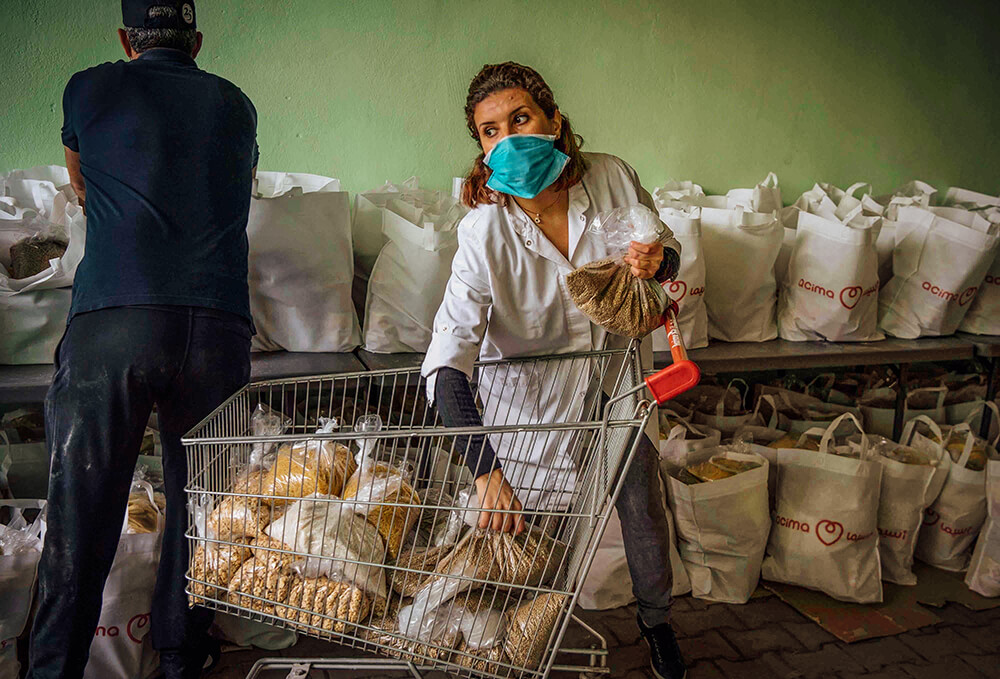
The pandemic will leave scars on the Moroccan working class
As for employees registered with the CNSS and who have lost their jobs, the Moroccan government has launched a website allowing unemployees, under certain conditions, to receive a lump-sum compensation for 3 months. That can reach a maximum of 2000 dirhams.
This measure was renewed in December 2020 for workers’ benefit in certain tourist activities still closed under the emergency law. A compensation that did not satisfy the trade unions since it covers only 3 months and remains derisory and even lower than the minimum wage.
As for workers in the informal sector, which provides 80% of jobs in Morocco and are not affiliated with social security, the government has set up a registration system by SMS and withdrawal of aid from bank counters. It provides assistance to 4.3 million families.
Aid is covered by the special emergency fund “Covid19”. It ranges from 800 to 1200 dirhams (half of the minimum wage) per month for 3 months, depending on the number of people per household.
This aid is certainly insufficient since 1 million Moroccan workers in the informal sector have fallen into poverty in 2020. If the government recognizes it, the figure is undoubtedly higher.
A great effort of national solidarity
This has led to a great effort of national solidarity. Many NGOs, trade unions, entrepreneurs, citizens, etc., have multiplied initiatives to help the poor, refugees, and undocumented migrants in Morocco.
The emergency fund Covid19 has also received donations from Moroccan employees’ payroll deductions, grants from the European Union, large companies, and wealthy individuals, including the king himself, totalling more than 37 billion dirhams.
These donations have enabled the functioning of hospitals, support for the economy and aid to the poor.
This surge of solidarity was not restricted to the national population, as Morocco sent urgent medical and food aid to 15 African countries: primarily Mauritania, the southern neighbour, and Burkina Faso, Cameroon, Comoros, Congo, Eswatini, Guinea, Guinea-Bissau, Malawi, Niger, Democratic Republic of Congo, Senegal, Tanzania, Chad and Zambia.
Waiting for a promised dawn
Today, Moroccans are still holding their breath, very exhausted, some even martyred, by this coronavirus period. Like all other countries, a strange and awkward semblance of normality is being installed, hoping that the restrictions will be lifted entirely soon.
Many voices are pleading that a return to the pre-Covid era is not a viable option and that real changes are needed in the country to deal with crises. Others humbly hope only for the closure of the pandemic parenthesis and the lifting of the state of emergency.
What is certain is that everyone is waiting for the opening of the borders. So that they can travel and welcome tourists again.

